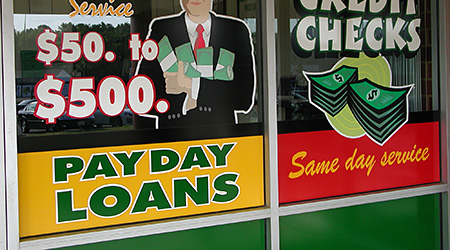Are Banks Different From Payday Lenders?

The answer unfortunately is, no - not really. Payday lending can be a very profitable business model with high profit margins. Organizations that offer payday and title loans receive inordinate amounts of negative press since they charge relatively high interest rates on short-term loans when people are at their most vulnerable. A recent development that blurs the lines is that banks are now offering a similar financial service called deposit advance loans.
The Consumer Financial Protection Bureau (CFPB) issued a report detailing similar characteristics such as loose lending standards, high costs, and risky loan structures between payday and deposit advance loans. Whether borrowing from a bank or payday lender, the result is often the same resulting in a cycle of indebtedness fro consumers.
"This comprehensive study shows that payday and deposit advance loans put many consumers at risk of turning what is supposed to be a short-term, emergency loan into a long-term, expensive debt burden," said CFPB Director Richard Cordray. "For too many consumers, payday and deposit advance loans are debt traps that cause them to be living their lives off money borrowed at huge interest rates."
Both types of loans are structured in ways which result in an average loan term of 12 days for payday loans and 14 days for deposit advance loans. Since most borrowers can't pay the amount in full with their next paycheck, it often results in continued borrowing. The fee structure is also similar where banks charge $10 for every $100 borrowed and payday lenders charge on average $15.
It used to be that banks were viewed as members of the community who helped consumers purchase their first home or open a savings account for their child. With the development of deposit advance loans the lines have blurred between predatory payday lenders and opportunistic banks seeking to increase profit margins.
Elsewhere on StockMonkeys.com







